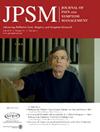Pediatric Palliative Care Simulation Improves Resident Learning Outcomes: An 11-Year Review
IF 3.2
2区 医学
Q2 CLINICAL NEUROLOGY
引用次数: 0
Abstract
Context
Many general pediatrics residents lack sufficient opportunities to conduct difficult conversations with families, particularly about end-of-life care. Simulation learning is an effective means of practicing professional skills. A pediatric palliative care (PPC) physician is uniquely suited to mentor residents and fellows learning to lead difficult conversations through simulation. Co-facilitation of the simulated difficult conversation by a bereaved parent or family member enhances the learning experience.
Objectives
To report 11-years’ experience simulating difficult conversations with bereaved parent-actors.
Methods
PPC physicians developed two simulations to teach difficult conversations to clinical learners at a midwestern quaternary pediatric medical center. Bereaved parents and hospital chaplains co-facilitated the simulation. The first portrayed the death of an infant following emergency resuscitation, and the second, a goals-of-care conversation with the parent of a child with a degenerative condition. A de-novo evaluation rubric was prepared using the six Accreditation Council for Graduate Medical Education (ACGME) Core Competencies to evaluate the participant's performance in the simulation.
Results
For the first simulated scenario (N = 194 residents; N = 16 fellows), residents improved significantly on 16/21 ACGME-based criteria between encounters; for the second (N = 118 residents; N = 14 fellows), residents improved significantly on 10/21 criteria. Fellows’ performance did not improve significantly in either scenario, but they presented with high baseline scores.
Conclusions
Simulations with bereaved parent actors improved general pediatrics residents’ performance and comfort during difficult conversations and are transportable to diverse settings.
儿科姑息治疗模拟提高了住院医师的学习成果:11 年回顾。
背景:许多普通儿科住院医师缺乏足够的机会与家属进行艰难的对话,尤其是关于临终关怀的对话。模拟学习是练习专业技能的有效手段。儿科姑息关怀(PPC)医生非常适合指导住院医师和研究员通过模拟学习引导困难对话。由失去亲人的父母或家庭成员共同主持模拟困难对话可增强学习体验:报告与失去亲人的父母共同模拟困难对话的 11 年经验:在美国中西部的一家四级儿科医疗中心,儿科医师开发了两种模拟教学方法,向临床学习者教授困难对话。丧亲父母和医院牧师共同主持了模拟教学。第一个模拟场景是一名婴儿在紧急复苏后死亡,第二个模拟场景是与一名患有退行性疾病儿童的家长进行护理目标对话。我们使用毕业后医学教育认证委员会(ACGME)的六项核心能力编写了一份全新的评估标准,用于评估学员在模拟情景中的表现:在第一个模拟场景中(住院医师人数为 194 人;研究员人数为 16 人),住院医师在 16/21 个基于 ACGME 的标准上有显著提高;在第二个模拟场景中(住院医师人数为 118 人;研究员人数为 14 人),住院医师在 10/21 个标准上有显著提高。研究员在两种情景中的表现均无明显改善,但他们的基线分数较高:与失去亲人的父母一起进行的模拟训练提高了普通儿科住院医师在困难对话中的表现和舒适度,并可在不同环境中使用。
本文章由计算机程序翻译,如有差异,请以英文原文为准。
求助全文
约1分钟内获得全文
求助全文
来源期刊
CiteScore
8.90
自引率
6.40%
发文量
821
审稿时长
26 days
期刊介绍:
The Journal of Pain and Symptom Management is an internationally respected, peer-reviewed journal and serves an interdisciplinary audience of professionals by providing a forum for the publication of the latest clinical research and best practices related to the relief of illness burden among patients afflicted with serious or life-threatening illness.

 求助内容:
求助内容: 应助结果提醒方式:
应助结果提醒方式:


